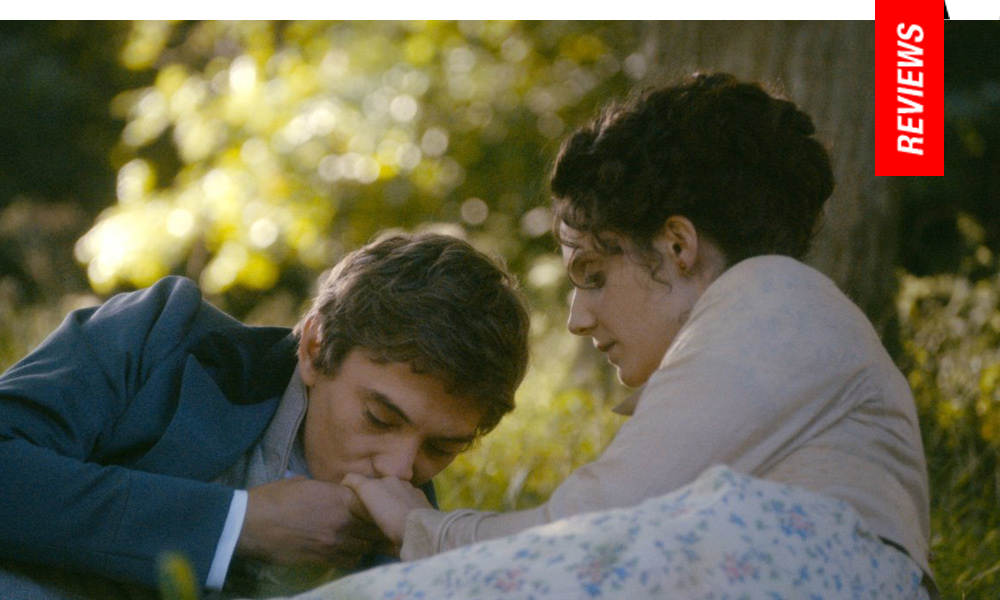When a Potiche Ascends the Stairs: Brizé’s Winning, Textured de Maupassant Adaptation
For his seventh feature, Stephane Brizé persuasively reflects the subjugation of women’s agency with the fragmented A Woman’s Life, and is perhaps the most auspicious transformation of the author since the handsome productions of the 1950s with this astute period piece featuring an exquisite ensemble of character actors.
After returning from convent school, Jeanne (Judith Chemla) takes joy in assisting her father (Jean-Pierre Darroussin) in the garden and perambulating with her mother (Yolande Moreau), a woman who spends most of her free time scrolling through the contents of letters she received throughout her life. With only the young family maid Rosalie (Nina Meurisse) as a friend and confidante, Jeanne soon finds herself courted by the handsome Viscount Julien de Lamare (Swann Arlaud). Swept into what she’s made to believe is romance, the marriage soon sours when Rosalie is found to be with child after having been raped by Julien. Thus begins Jeanne’s initiation into a world more harrowing than she had anticipated as her ideals and dignity are slowly stripped away.
Judith Chemla, who has starred as a supporting player in a number of period productions for noted auteurs (Tavernier, Techine) comes to the fore as the passive, frustrated center of Brizé’s film. Oblivious to the tendencies and behaviors of those around her, A Woman’s Life gently ushers her from a frivolous young woman of privilege to an increasingly fraught wife forced to contend with a debauched husband.
Brizé’s film has all the potential of a tawdry soap opera, and yet is distilled into fragmented reflections of her escapist tendencies. As we rush through defining moments of her life, time slows as Jeanne disappears into the bright, sunshiny memories which brought her to such a brooding standstill. Chemla is tasked with revealing Jeanne’s persona through inscrutable moments, an object acted upon despite meager efforts to gain control of her life. When escape presents itself upon learning of her own pregnancy at the same time as her husband’s philandering with Rosalie, her own mother confirms her fate by forcing Jeanne to forgive rather than return home.
Yolande Moreau gives a subversively droll performance as a cold maternal figure who has several major secrets of her own. As her counterpart, Jean-Pierre Darroussin nearly disappears within the period garb as Jeanne’s mild mannered father, while a mousy Swann Arlaud is sufficiently unpalatable as her cheating husband. Clotilde Hesme surfaces in a brief subplot which yields shockingly violent results, while rising young actor Finnegan Oldfield (Nocturama; Les Cowboys) shows up in the third act as Jeanne’s selfish teenage son, the specter haunting her golden years and sending her into protracted anguish.
Much like Brizé’s last lauded feature, 2015’s The Measure of a Man, the narrative revolves around distilled, refracted moments informing its protagonist’s mind frame, a person once again trapped by economic necessity in an unfavorable role which whittles away at their resolve.
Collaborating once more with scribe Florence Vignon (who scripted his superb 2009 film Mademoiselle Chambon), they achieve a striking portrait of a woman of certain means as equally weighted down by her expectations and limited control. Brizé also taps DP Antoine Heberle (who worked on Chambon and A Few Hours of Spring, as well as Ozon’s Under the Sand) who transforms the film into a constant visual juxtaposition of stark, contrasting palettes, ranging from the brooding grays of Jeanne’s present to the golden, sparkling vivaciousness of happy times she can never return to. With stunning finality, a drastic situation boils down to bittersweet reality— “Life is never as good or as bad as you think it is.”
★★★★/☆☆☆☆☆
